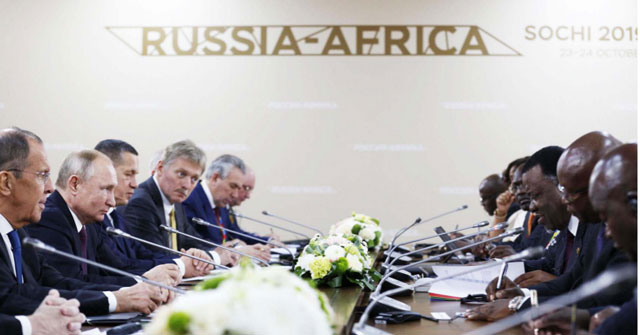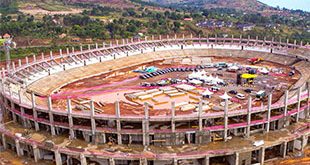
Wagner Group mercenaries are a sinister and troubling side of Russia in Africa which needs to be confronted
COMMENT | HILDA NASSOZI MUKIIBI | Much of Africa and the developing world was for years fascinated by the Russian assault rifle; the Avtomat Kalashnikova (AK47) which the then-Union of Soviet Socialist Republics (USSR) deployed in the struggle for liberation of many a nation. The iconic gun it bequeathed to the world has left physical and psychological scars in equal measure.
Russia was the biggest state in the USSR and became its most dominant successor state. However, one would today struggle to count any tangible Russian investment in Africa in all these decades it has been a global power.
The last decade has seen an even more sinister and troubling side of Russia in Africa, which African leaders, people and countries need to confront head on.
Today in Africa, Russia is more synonymous with Wagner Group PMC (Private Military Company), a mercenary group that appears to operate with Russia’s backing in dozens of largely African countries, answerable only to themselves and conducting military operations in return for cash or mineral resources.
Wagner Group PMC, owned by Russian businessmen and alleged Kremlin insiders Yevgeny Prigozhin and Dmitry Utkin, and whose African operations are run by Col. Konstantin Pikalov, have been active in Sudan under Omar el Bashir (2017-2019) where they advised government and participated in suppressing anti-Bashir protests, in Mozambique, Madagascar, Central African Republic, Guinea-Bissau and Libya.
In Libya where Wagner Group PMC started operations in April 2019, its mercenaries have recently been revealed in an investigative report this last August as well as a UN report, to have committed war crimes while supporting the activities of warlord Khalifa Haftar and while using weapons and armaments only available from the official Russian army. The group openly admitted to killing prisoners of war because as mercenaries, “no one wants an extra mouth to feed”. In Libya, this includes civilians perceived to be supporters of ‘the other side’. Acts in Libya like laying booby traps and mines that killed civilians constitute war crimes.
The fact that documents uncovered in the Libyan war report show Wagner to be requesting for tanks, state of the art Radar system and drones only point to a Russian state involvement at least in part.
In Central African Republic, Wagner mercenaries have been reported to have committed atrocities against civilians while they continue to date, to offer their paid support for President Faustin Touadera. More baffling is the fact that President Touadera rejected an offer from African countries to train and equip the C.A.R. army and opted for mercenaries who are paid in mineral royalties.
Have citizens of these countries interrogated how much of the unexploited mineral wealth of their countries have been mortgaged by their leaders in pursuit of their hold onto temporal power?
Wagner Group has been active in Guinea-Conakry, where elements of the military recently overthrew President Alpha Conde and while it is too early to blame the mercenary group for this, it leaves a lot of unanswered questions; especially taking into account Guinea’s previous struggles with foreign companies over its mineral wealth.
More worrying now are reports that Mali’s military junta leader Col. Assimi Goita, who staged two successful coup d’état to come to power, is now contracting 1000 Wagner Group mercenaries into his volatile country already bedeviled by Islamist jihadists. The question is whether a mercenary group can fight an organic war in defence of a country. For Mali, what does the involvement of the mercenary outfit portend for the country’s return to democracy and civilian rule?
Mercenaries tend in the long run, to destabilise countries as seen in Democratic Republic of Congo and Comoros among others during the cold war.
Russia as a responsible nation and President Vladimir Putin in particular needs to put a stop to this cancer of Russian mercenaries with the apparent backing of the Kremlin, running roughshod all over Africa.
Time may come when bodies of Russian mercenaries may be dragged on streets of African countries and the optics will not be good for President Putin.
If Russia seeks to establish a military presence in Africa, international law allows it to do so through bilateral and multilateral agreements. But Russian mercenaries, although they give the Kremlin the desired deniability when things go wrong, are a recipe for disaster. When there is fallout from the mercenary engagement in Africa, people will remember little about Wagner Group PMC; they will remember and blame Russia and Putin. President Putin owes the world and Africa action to stop this Russian cancer developing in much of Africa.
****
Hilda Nassozi Mukiibi is a Ugandan interested in international affairs
 The Independent Uganda: You get the Truth we Pay the Price
The Independent Uganda: You get the Truth we Pay the Price



